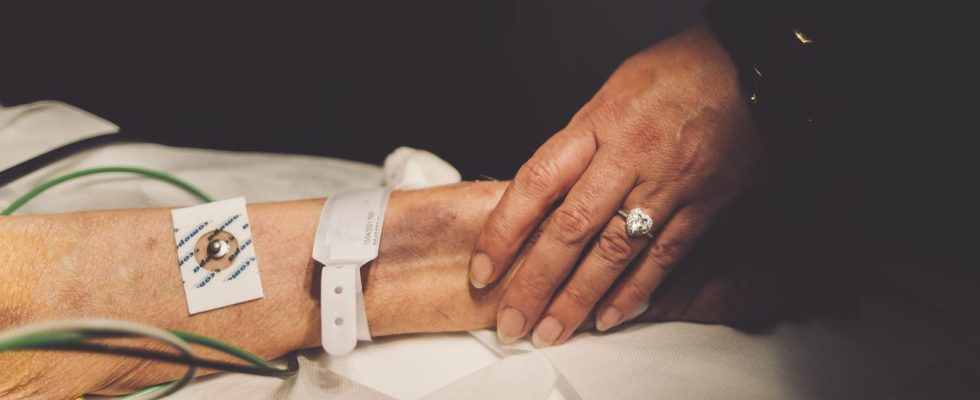Emmanuel Macron categorically refuses to talk about euthanasia and assisted suicide in his end-of-life bill. However, certain measures provided for in the text are very close…
The end-of-life bill must not rhyme with assisted suicide or euthanasia. “Words are important and we must try to name reality well without creating ambiguities,” insisted Emmanuel Macron near Release And The cross in an interview published on March 10. Also, he excluded the two terms from the text, preferring the expression “assisted dying”. But by wanting to avoid all “ambiguities”, would the Head of State not be playing with words by creating confusion?
This is what is criticized by certain members of the National Consultative Ethics Committee (CCNE), including professor and doctor Régis Aubry who notably headed the palliative care service at Besançon University Hospital. “I think there is a form of euphemization that I personally find a little dangerous. I think we should call a spade a spade,” the health professional reacted on franceinfo the day after the publication of Emmanuel Macron’s interview.
Emmanuel Macron tried to draw a line differentiating euthanasia and assisted suicide from the measures provided for assisted dying. However, compared to the definitions given by the CCNE, the measures designed by the bill are very close to the acts that the Head of State refuses to name. For the tenant of the Elysée, euthanasia “means the act of ending someone’s life with or even without their consent”. But for the CCNE, the patient’s consent is an obligation to resort to euthanasia, which it defines as an “act intended to deliberately end the life of a person suffering from a serious and incurable illness, at their request, in order to put an end to a situation that she considers unbearable.
As for assisted suicide, this consists of letting the patient self-administer a lethal product prescribed by the medical profession and under the latter’s supervision. The President of the Republic specifies for his part that assistance in dying implies the commitment of the vital prognosis in the short or medium term and that consequently “the choice is not between life and death since death is already there”, unlike assisted suicide. A condition which is not taken into account for assisted suicide.
The fact remains that according to the text on the end of life, which will be examined in Parliament from May and may still evolve, a patient who has received a favorable opinion to receive aid in dying will have to administer it himself. the lethal substance, but may entrust this task to a third party of his choice if he “is not physically able to carry out it”. Situations which correspond to the principles of euthanasia and assisted suicide as defined by the CCNE, before the addition of the conditions and interpretations explained by the Head of State.
“Assistance in dying” so as not to rob the spirits?
Emmanuel Macron’s refusal to discuss euthanasia or assisted suicide could above all be explained by the imagination surrounding these two terms. Some medical bodies, notably several palliative care organizations, are strongly opposed to the idea of causing death and repeat that carrying out euthanasia or assisting a suicide “is not care”, even if it is the wishes of the patient. patient.
Instead of these divisive words, Emmanuel Macron relies on the expression “assisted dying” which suggests an idea of solidarity with patients at the end of life. He also describes his text as a “law of fraternity” which consists of “global support for society through solidarity and fraternity of people who are going to die […] and that we must help until the end”. By excluding words that are too loaded to replace them with notions that are difficult to attack, isn’t Emmanuel Macron trying to put all the chances on his side to have the text adopted In any case, this did not prevent opponents of euthanasia from denouncing a text that is too permissive or defenders of the right to die with dignity from describing a bill that does not go far enough.
